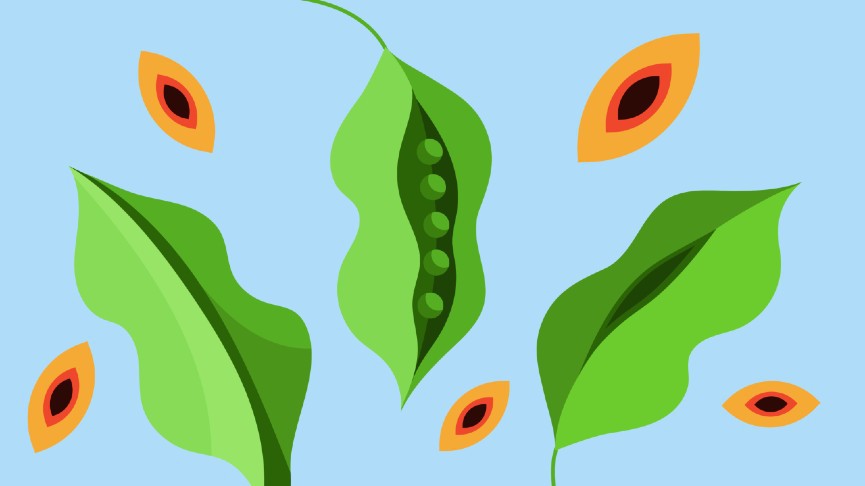Vegetables and Vaginas: Eating for Vaginal Health

You’ve heard about the mind-gut connection. You’re well aware of the influence that your diet plays on your health and overall wellbeing. But what about the gut-vagina connection?
That’s right, the gut-vagina connection is very real in the sense that your vaginal health is often a reflection over your overall health, which is of course influenced by *drumroll please*…your diet!
Eating a healthy diet can help regulate cramps, ward off infections, and keep your vagina thriving. How does one eat for a healthy vagina?
Are there certain foods to stay away from? What role does diet play in treating pre-existing reproductive health issues that oftentimes affect the vagina?
Tune in and find out!
The Magical Microbiome
Ok back to gut health. The standard guidelines around how to maintain a healthy diet also apply to maintaining vaginal health: Eat your veggies, limit processed foods, animal products, and refined sugars, avoid excess alcohol and caffeine.
Without being too strict on yourself (unless medically necessary), eating according to these guidelines is important for maintaining a healthy gut microbiome. The gut microbiome is home to many different microorganisms, bacteria, viruses, protozoa, and fungi called gut flora.
This incredible flora help to maintain a balanced immune system, keep your brain and heart-healthy, and so much more.
When thrown off balance through a less than ideal diet, the use of antibiotics, or through chronic illness, this creates a ripple effect throughout the whole body. Which may inadvertently harm your vagina.
Your vaginal flora helps to maintain the slightly acidic environment of your vagina, which is typically around 4.5 pH. This acidity helps to prevent any unwanted microorganisms from developing and thriving.
Food For Your Flora
Now that you’ve brushed up on your microbiome knowledge, let’s get to the fun part – food!
Sugar, Sugar
Sugar is quite a controversial topic. Loved by so many, but not always by the microorganisms that work to keep you in tip top shape. It’s important to keep in mind that refined sugars like the ones you find in candy and soda, work differently in the body than natural ones that occur in fruit and honey.
A sugar-filled diet comes with an increased risk of chronic inflammation, which hinders the body’s ability to fight infections.
This is especially important for those who are prone to yeast infections. Yeast thrive on sugar, and when coupled with a steady diet of refined sugars, can lead to itchiness, abnormal discharge, and all the other telltale signs of a vaginal yeast infection.
A little is fine here and there, but watch your body’s reactions, and try to opt for fruits and unsweetened dark chocolate instead!
Beware of Booze
Keeping in the same vein as sugar is watching your alcohol intake. Given that alcohol is made from fermented foods, which naturally produces sugar as part of the fermentation process – it makes sense to limit the amount of alcohol that you drink.
While certain drinks like a spirit with tonic water contain less sugar than a glass of red wine, consuming alcohol can increase inflammation in the body, harming your gut bacteria, and in turn – your vagina.
Fats are Your Friend
Ignore past fad diets condemning fat – they’re awesome! Healthy monounsaturated fats like those found in olive oil, legumes, nuts, and avocados are necessary for maintaining your overall health.
That olive oil-based salad dressing may help fight off inflammation, one of the many roles of healthy fats. A handful of nuts helps to regulate your cholesterol, which is keeping in maintaining healthy hormone function.
Some research suggests that a high fat diet can trigger Bacterial Vaginosis, so if BV is an issue for you, you may want to limit the amount of healthy fats in your diet.
Your hormones are regulated by your endocrine system. When this is out of whack, it can lead to or exacerbate reproductive health disorders like endometriosis, PCOS, Herpes Simplex Virus, and menstrual or fertility issues.
You can find out more about eating for endometriosis here.
Probiotics Please
Eating for a healthy vagina isn’t just about warding off harmful bacteria, it also means making your body a hospitable place for good bacteria.
One of the easiest ways to boost your intake of beneficial bacteria is by eating probiotics. These friends for your flora help to regulate gut health, and keep your body’s immune system functioning well. This is essential for warding off vaginal imbalances and regulating other reproductive health disorders.
While probiotic supplements are a great option, you can also naturally incorporate them into your diet with probiotic-rich foods like kimchi, sauerkraut, plain yogurt, and tempeh – although you may want to limit your soy intake.
Some other supplements you may want to integrate into your regime? Calcium, vitamin E, and folate are all necessary for a healthy body – and vagina.
Veggies and Vages
Now for this article’s namesake – vegetables! We’ll throw into this category any whole food, plant-based goodies you may find in your garden.
Plant products are essential for maintaining your gut microbiome, as well as your vaginal flora.
Not only do they help with digestion, cognition, and fighting off inflammation, they also are rich in key vitamins and minerals that your vagina needs to keep doing everything it’s best at!
Luckily there’s a world of fabulous fruits and veggies out there just waiting for you to gobble them down. Chow down on broccoli, leafy greens, squashes, berries, and so much more!
Alright fellow vagina-owners, here’s your friendly reminder to eat your plants, stay hydrated, and make friends with fats. Do it for your vagina!
Facts Checked By:

Dr. Shree Datta is a Consultant Obstetrician and Gynaecologist in London, specialising in women’s health including all menstrual problems such as fibroids and endometriosis. Dr. Shree is a keen advocate for patient choice, having written numerous articles and books to promote patient and clinician information. Her vision resonates with INTIMINA, with the common goals of demystifying periods and delivering the best possible care to her patients.
Article written by:

Natasha (she/her) is a full-spectrum doula and health+wellness copywriter. Her work focuses on deconstructing the shame, stigma, and barriers people carry around birth, sex, health, and beyond, to help people navigate through their lives with more education and empowerment. You can connect with Natasha on IG @natasha.s.weiss.


